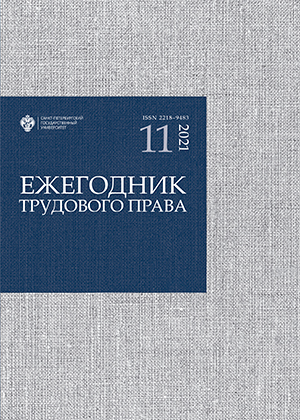Project employment in the labor legislation of Russia and the countries of North-East Asia (People’s Republic of China, Japan, Republic of Korea)
Abstract
In the context of the transformation of the global economy, the classical forms of organizing business and, therefore, labor activities are losing their relevance and giving way to new forms that are more adapted to the changing conditions of modern society and economy. Project employment as a type of temporary employment is becoming widespread both in the Russian Federation and in the countries of Northeast Asia (People’s Republic of China, Japan, Republic of Korea). The article provides a general description of the project approach as a form of organization of business and labor activity at the enterprise level and project employment as a type of temporary employment. The features of the project as the end result of labor in project employment (uniqueness, concreteness and complexity, certainty of the result, limited time and resources) are formulated, as well as, in general terms, the options used in practice for formalizing work on the project within the framework of the current norms of Russian labor legislation are defined. As a result of the analysis of the national approaches and labor legislation of the People’s Republic of China, Japan and the Republic of Korea, the article defines and considers, in relation to the regulation of project employment, the legal norms on fixed-term employment contracts, on part-time work, on part-time jobs, and also made general conclusion about the latency of project employment both in Russian legal reality and in the national law of the countries of North-East Asia. Proposals have been made for borrowing certain legal norms into domestic labor law that can effectively guarantee the rights of workers and employers when using the project approach.
Keywords:
project employment, labor contract, labor law, People’s Republic of China, Japan, Republic of Korea
Downloads
References
References
Downloads
Published
How to Cite
Issue
Section
License
Articles of "Russian Journal of Labour & Law" are open access distributed under the terms of the License Agreement with Saint Petersburg State University, which permits to the authors unrestricted distribution and self-archiving free of charge.




